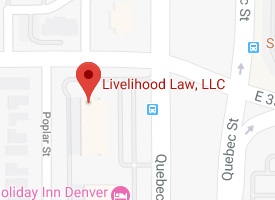
Employees in both the public and private sector often question their rights to payment for their work. To clear up some of the confusion, here is a guide to everything you need to know about wage and hour laws in Colorado.
Employee Classifications
What is an “exempt” employee?
Under the Fair Labor and Standards Act (FLSA), exempt workers are salaried employees whose job duties fall within specific categories of work. Exempt work categories include bona fide executives, administrative or computer professionals, and outside sales workers. In Colorado, exempt employee status also extends to cover property managers, companions, babysitters, domestic workers, volunteers, supervisors, elected officials and staff, and certain types of drivers, mechanics, students, and institutional workers.
What is a “non-exempt” employee?
Non-exempt employees receive an hourly rate for each hour worked. Under federal and state law, employers must pay hourly workers at least the minimum wage for every hour worked up to 40 hours.
Pay Requirements
Are there minimum salary requirements for exempt employees?
Yes. To qualify for exemption under federal law, employers must pay salaried workers at least $455 per week. Colorado state law does not explicitly set a minimum salary amount; however, employers must pay salaried workers more than the minimum wage for all hours worked.
What is minimum wage for non-exempt employees?
As of 2019, the federal minimum wage is $7.25 per hour and $2.13 for tipped employees. In Colorado, the minimum wage is $11.10 and $8.08 for tipped employees. Tipped employees are workers who receive more than $30 per month in tips. A tipped employee’s regular pay plus tips must at least equal minimum wage.
When is an employee entitled to overtime pay?
Overtime pay equals one and one-half times an employee’s regular hourly rate. In Colorado, employees must receive overtime pay for any work over: (1) forty hours per workweek; (2) twelve hours per workday, or (3) twelve consecutive hours of work. It is a good idea to keep records of your schedule and hours worked, otherwise it can be very difficult to calculate what you are owed and to prove your claim.
Are employees entitled to bonuses or commissions?
Under state law, workers are not entitled to bonuses or commissions until they earn those funds. The analysis here is very fact specific and it will depend on what agreement you have with the company. One common issue is that a payment might come in after you have done everything you were required to do, but while you are no longer working for your employer. Whether you are entitled to those proceeds can be a fight, and it helps to have a lawyer.
What about holiday and sick pay?
Colorado law does not require nor prohibit pay for holidays, sickness, or bereavement. State law also does not require employers to provide time off due to illness or injury or provide extra pay for work on holidays. Again, an employee’s rights in these situations are very fact specific and will depend on what agreement you have with the company.
How soon will I get my final paycheck?
Employees can learn about the Colorado Labor Laws regarding final pay here: www.colorado.gov/pacific/cdle/final-pay The Colorado Division of Labor Standards and Statistics can be contacted directly with questions at 303-318-8441.
Consequences for Employers who break Colorado Wage Laws
If an Employer refuses to pay all earned wages, there can be penalties and fines assessed. You have the responsibility of making a formal wage demand in order to pursue this additional money. The instructions for filing a wage demand can be found here: https://www.colorado.gov/pacific/cdle/complaint-forms Knowing what you’re entitled to is more complicated than just a form, so speaking with an attorney is in your best interest.
Have your rights been violated?
If you feel your employer is violating your right to be paid fairly for your work, Livelihood Law is here to help. Contact us today so that we can assist you in figuring out your next steps.


